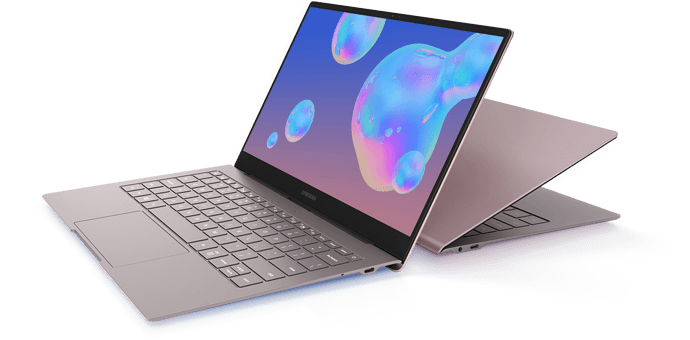Samsung has announced the Galaxy Book S, an ARM-based laptop that runs Windows 10, has up to 23 hours of battery life, and includes LTE connectivity.
Good specs in a light package—looks like a $999 price.
23 hours of battery life and LTE connectivity are both things I’d love to see Apple put in a laptop.
Will this thing run any Windows app or does it only run a subset of apps that reply on APIs intended for running ARM compiled Windows?
Obviously I like 23 hrs battery life. But I’d prefer sticking with my 6-8 hrs real world if in order to get those 23 hrs I’d have to sacrifice things like fast (non-emulated) virtualization and compiling Linux binaries to run on macOS. Those here who remember the SoftPC days know what I mean.
I’m still on the fence about LTE on a MBP. It sounds nice, but also kind of redundant considering my iPhone does totally seamless tethering just fine. I get all of that for free now (my plan includes tethering data). With LTE in my MBP I’d expect to have to get an additional plan, i.e. increased cost. I’d rather they use that tight internal space for more battery than for LTE circuitry and antennas I don’t really need. I suppose some without iPhones might not experience such a hands-off tethering experience and I can imagine they’d prefer it built in. Not to mention those without plans that already offer loads of (tethered) data.
No, it won’t run Windows apps written for x86 or amd64 processors. I don’t really have experience with them but I think what users of Windows for ARM will run are Universal Windows apps (UWP apps); these apps don’t use native APIs they use “Windows Runtime” APIs. The Windows Runtime layer translates the code to what the processor architecture needs. In practice, it can probably be thought of like Java’s JVM but more lightweight.
My understanding is all apps in Microsoft’s App Store are UWP but they changed their policy earlier this year to entice more publishers to make their software available in the store, especially games. If UWP doesn’t really catch on, Windows ARM computers will always have limited software options and may treat them like Chomebooks without the Googliness.
Thanks Curtis. UWP, I knew I remembered reading something about that.
I guess if eventually all Windows apps become UWP such an ARM notebook could indeed be a “real” Win computer with simply great battery life. Maybe games aren’t even that important considering this box is going to have integrated graphics which many serious gamers will laugh at anyway.
To a certain extent the jury’s still out on scalability of ARM CPUs. Sure the A12X is one heck of a CPU, but it’s nevertheless a CPU that was optimized to fit an envelope determined by a design without a heat sink, no fan, and stringent battery requirements. It cannot run at a single core >2.5 GHz and it cannot run several cores at high clock. The question is if such an architecture can be scaled to support higher clocked multicore designs with relaxed cooling requirements, without sacrificing that signature low power consumption. Voltage usually has to go up when you try to raise the clock, and power (heat dissipation requirements) scales at best like the square of that voltage. In reality it’s usually worse. Of course Apple’s CPU designers know all of this very well so either they have a particularly smart idea in the works, or they know why they haven’t demo’ed or said the slightest about an Ax Mac yet.
Microsoft has stopped updating the UWP versions of its Microsoft Office apps so that doesn’t bode well. I think you can still get them but they’re not receiving feature updates through O365 membership the way the traditional Win32 (and macOS) versions are. I was serious about the Chromebook comparison, the web versions of the Office apps may be the preferred ones for people running Windows on ARM.
Yeah. Yikes.
Samsung’s $999 strikes me as a lot for a Chromebook. ;)
Well, phooey. That seems like a huge caveat for a lot of people.
